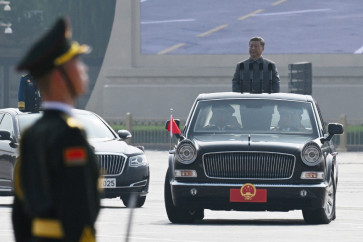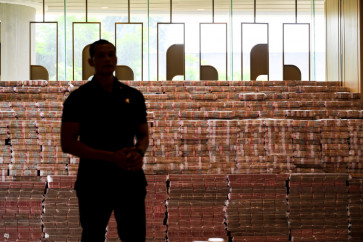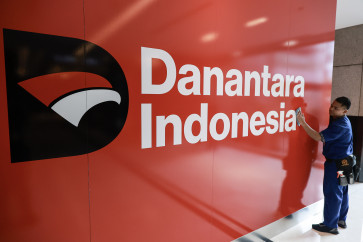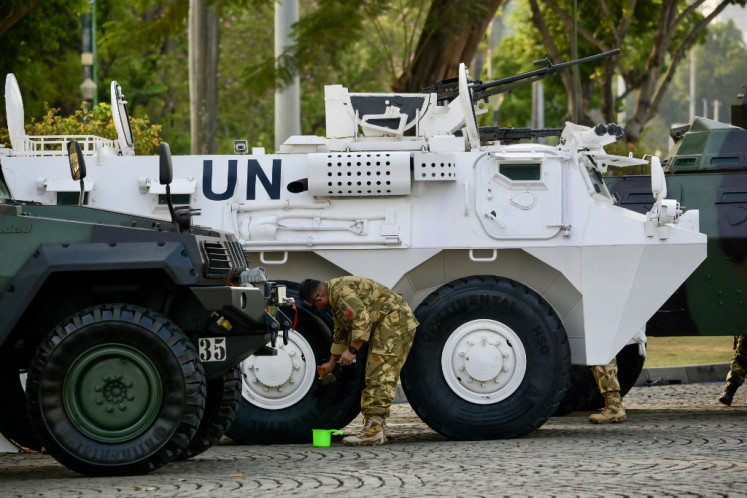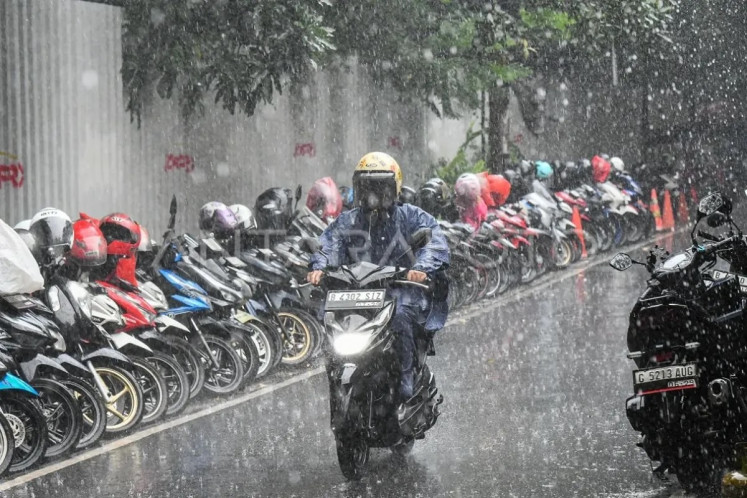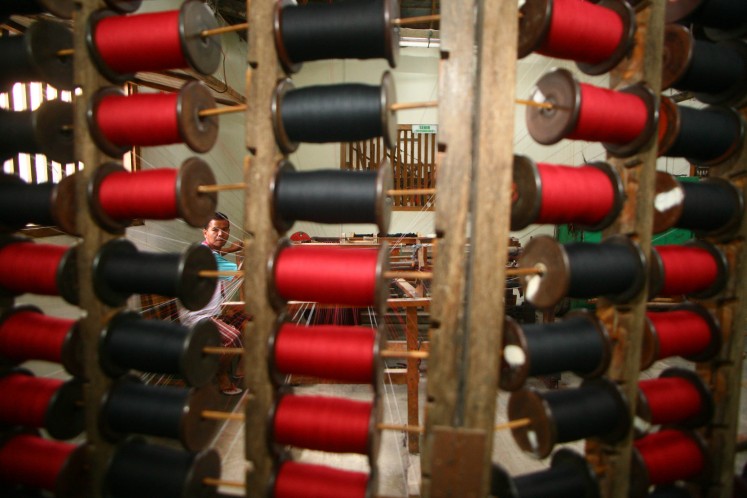Popular Reads
Top Results
Can't find what you're looking for?
View all search resultsPopular Reads
Top Results
Can't find what you're looking for?
View all search resultsRI-Malaysia relation: All in the family
Much has been written about the tensions between Indonesia and Malaysia
Change text size
Gift Premium Articles
to Anyone
M
uch has been written about the tensions between Indonesia and Malaysia. The general focus has been on problems with Indonesian domestic workers in Malaysia, and Malaysia’s apparent attitude towards Indonesia: Claiming cultural superiority and an institutionalized pejorative sentiment against Indonesians.
All of this has contributed to the tension, renewing feelings reminiscent of the confrontation of the 1960’s. These 2010 AFF Suzuki Cup final matches don’t help either.
The poor diplomacy and slow response of the Indonesian government sealed its failure to protect the millions of Indonesian domestic workers in Malaysia. Add this to the Malaysian government’s view of our migrants — which appears, at times, inhuman — and we see the origins of a mess.
At this moment, there are Indonesian migrant workers suffering from abuse. Many of these people come from remote corners of Indonesia where they often only receive an elementary education, and have an insufficient grasp of the English language. These are the people facing discrimination. Exploited in poor working conditions, they are forced to accept inequities. Some even face the death penalty. They answer to “Indon”, the racial slur used to denigrate Indonesians.
Historically, ethnic slurs were stereotyping tools, used to construct negative images of the “Other” and to disrespect and dehumanize another race, ethnic group or nationality.
In The West in the Eyes of its Enemies, authors Ian Buruma and Avishai Margalith discuss the phenomenon of Occidentalism. It is a thought-provoking analysis of stereotypes of the Western world.
An earlier book, Orientalism, by Edward Said, conversely criticized the Western world’s spread of false assumptions about the East.
To a certain degree, I would argue that the conflict between Malaysia and Indonesia is similar to the binary opposition between Orientalism and Occidentalism. From a cultural theory standpoint, the negative images Malaysia is sponsoring of Indonesian migrant workers or Indonesian people as a whole are clear acts of “othering”, that is, differentiating a group apart from the “self”.
Ironically, Malaysia and Indonesia share the same Malay roots as well as Islamic culture. Though some degree of racism seems to be part of human nature, it strikes me as funny that people with such close, common roots impose racial stereotypes upon their brothers and sisters.
Although this racist sentiment grew from the context of Malaysian masters and Indonesian workers, “Indon” is being used to refer to the entire Indonesian population.
Former Indonesian foreign affairs minister Ali Alatas confirmed that “Indon” was commonly used in Malaysian media, keeping the societal pejorative undercurrents running and, as a consequence, devaluing humanity. These conditions only validate racist sentiments against Indonesians.
It is no surprise that Jakartans now say “Malek” rather than Malaysian in return. “Indon” and “Malek’” are slurs, and only increase animosity on both sides.
We should have learned from history that this is a well-worn path. Some people called Pakistanis, “Pakis,” Nigerians, “Nigers,” “inlander” was common for Indonesians and Malaysians during colonial times and Indonesians call white people bule.
There are other similarities to the colonial racism experienced in the 17th through 19th centuries, when political and colonial dominance were mixed. In ancient Rome we saw patricians, knights, plebeians and slaves. In the middle ages we had feudal lords- vassals, guild-masters- journeyman, apprentices and so on.
Malaysia has used its political and economic leverage and propounded new degradations toward our people with their “Indon” creation. When we review racism’s track record, the Malaysian innovation is clearly a drawback that needs to be seriously addressed.
Malaysia’s progressive appropriation of Indonesian traditional properties and songs and the assault of
an Indonesian Karate coach in Malaysia contribute further to the tension.
At this point, the evidence surely runs counter to what Malaysia means by “Truly Asia”, doesn’t it?
On the Indonesian side, people’s hatred towards Malaysian behavior is expressed no better. In Jakarta, we often see people wearing T-shirts covered in slurs such as Maling-sia (literally, thief), Malek (ugly Malaysian) and many more. It’s the progressive story of ethnic slurs.
Compared with neighboring countries, Indonesia has everything it takes to be a site of great cultural heritage in Asia and a prime representative of Malay culture. But now it has lost favor, something Malaysia has a lot of, presently.
We might see Malaysians as disrespectful and thankless to Indonesians, but I choose to see it the other way around. I must be honest; Indonesia should thank Malaysia for awakening our consciousness to our neglect of our national community and our rich traditional properties.
More importantly, we should take up these issues and reconstitute our nationalist spirit in our nation’s interest. I expect that Malaysians would again call an Indonesian an Indonesian and that Malaysia and Indonesia could live in harmony as good siblings and neighbors in the coming New Year’s time.
The writer is a PhD candidate in the Department of Social and Cultural Anthropology,
Albert-Ludwigs University, Freiburg im Breisgau, Germany.


